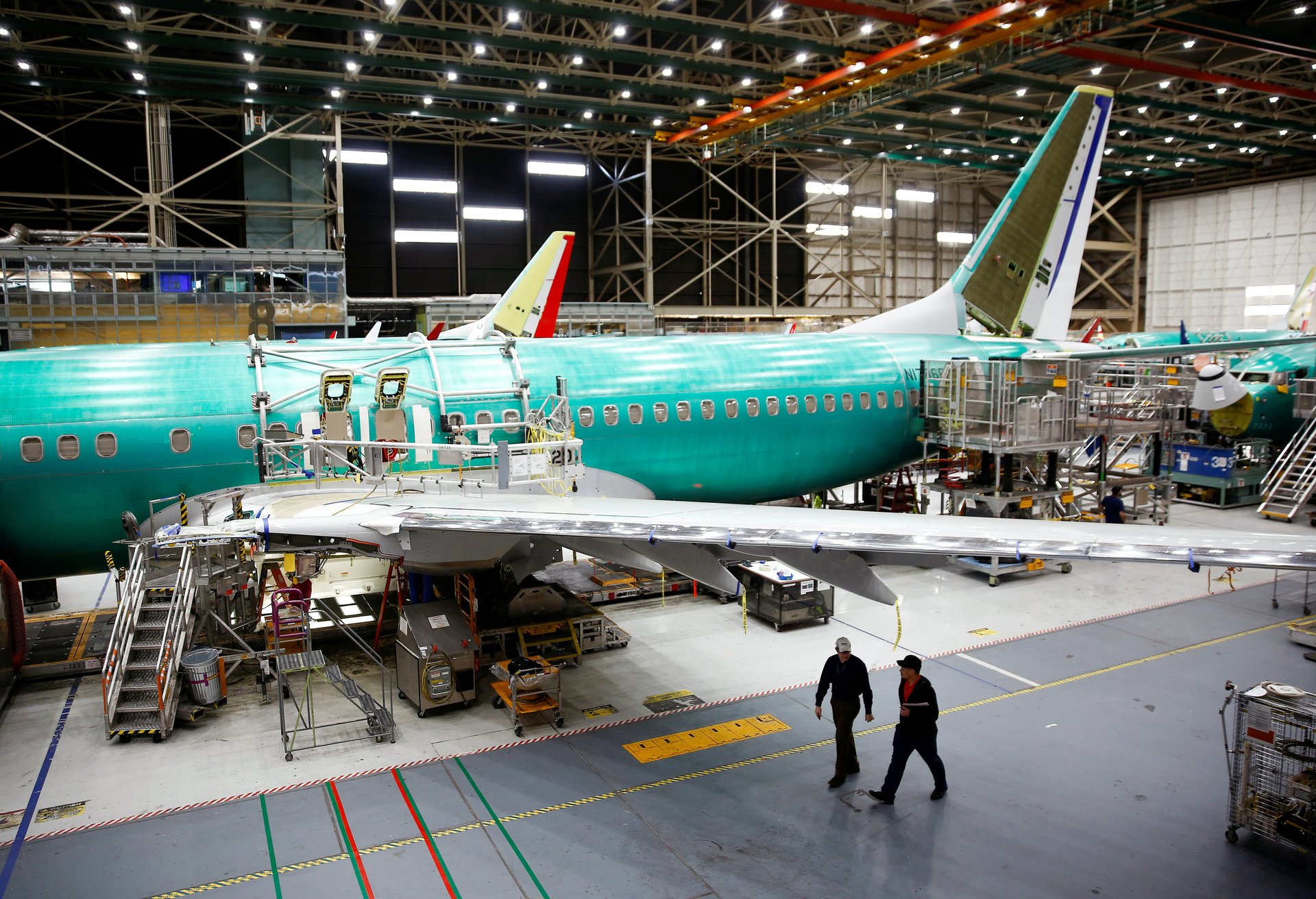Boeing’s software fix for the 737 Max is taking longer than expected
The US Federal Aviation Administration (FAA) said yesterday (April 1) that more time was needed for a software enhancement to the 737 Max aircraft that Boeing had expected to roll out to airlines no later than this month.


The US Federal Aviation Administration (FAA) said yesterday (April 1) that more time was needed for a software enhancement to the 737 Max aircraft that Boeing had expected to roll out to airlines no later than this month.
The software update is meant to revamp the functioning of a new anti-stall flight system, whose presence only became widely known to pilots after a Lion Air flight crashed in Indonesia in October, killing all 189 on board. Indonesian accident investigators found pilots had battled the Maneuvering Characteristics Augmentation System, or MCAS, which is designed to automatically pitch the plane’s nose downward sharply to prevent an impending stall in response to data about the plane’s angle.
“The FAA expects to receive Boeing’s final package of its software enhancement over the coming weeks for FAA approval. Time is needed for additional work by Boeing as the result of an ongoing review of the 737 MAX Flight Control System to ensure that Boeing has identified and appropriately addressed all pertinent issues,” said the regulator. “Upon receipt, the FAA will subject Boeing’s completed submission to a rigorous safety review.”
In the wake of the first crash, regulators began working with Boeing on software changes to address MCAS issues that troubled pilots—such as the fact that it was designed to deploy based on input from a single “Angle-of-Attack” sensor, and that it would repeatedly engage for 10 seconds at a time, powerfully redirecting the plane downward even after pilots had taken counter measures. Pilots received no training on MCAS as the plane began to be used from the middle of 2017—with some 387 of them now in fleets across the world.
As the software update was in development, an Ethiopian Airlines plane crashed on March 10, just six minutes after takeoff, killing all 157 people on board. Ethiopia has said it expects to soon release a preliminary investigation report. Leaks from the investigation suggest MCAS was activated at the time of the crash, and that—just as in the Lion Air tragedy—pilots were frantically trying to redirect the plane up until time ran out.
Countries around the world followed China’s lead in grounding the plane, with the US the last to do so. The FAA said on March 11 it would issue a directive to airlines mandating them to deploy the update “no later than April.” American Airlines, for example, had been expecting to resume using the plane in mid-April (paywall).
The new announcement offers no timeline. It is also unclear when Boeing will submit the final version of the software to the FAA, nor what specifically is under review, making it likely the grounding will drag on longer than anticipated.
Boeing didn’t immediately respond to a query about the status of the update.
The company’s vice president of product development, Mike Sinnett, last week made a presentation at the company’s Renton, Washington headquarters to pilots and airline executives, offering an overview of the changes planned for the MCAS, which include preventing it from deploying on a single sensor and limiting the maximum it can engage.
An alert that goes off if the plane’s two Angle-of-Attack sensors are in disagreement will also be made mandatory, instead of optional, and if they disagree by a preset amount, MCAS won’t activate. Airline pilots tested out the changes in a software simulator late last month. A recreation of the problems faced by the Lion Air pilots showed pilots in a similar situation would have just 40 seconds (paywall) to save their passengers from disaster.
The FAA has been in the spotlight since the crashes, as serious questions swirl over how robust the safety certification for the Max was. The agency has over the years outsourced parts of the certification process to airplane manufacturers themselves. The Department of Transportation’s oversight office is auditing how the regulator certified the Max, and last week its acting administrator appeared before a Senate panel to take questions on that.
The FAA’s last non-acting chief stepped down in January 2018. In the wake of the second 737 Max crash, president Donald Trump nominated a former Delta executive to head the regulator.